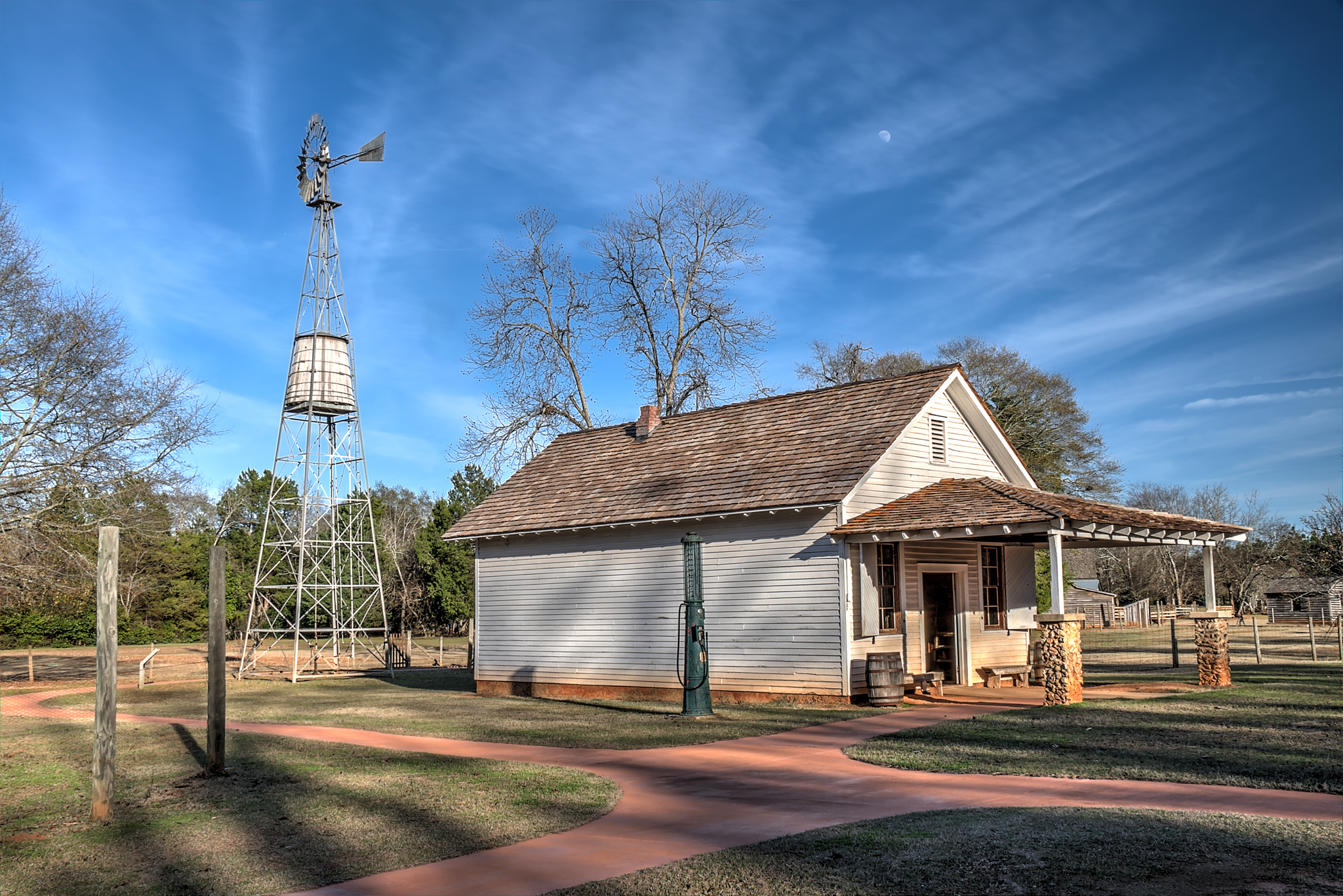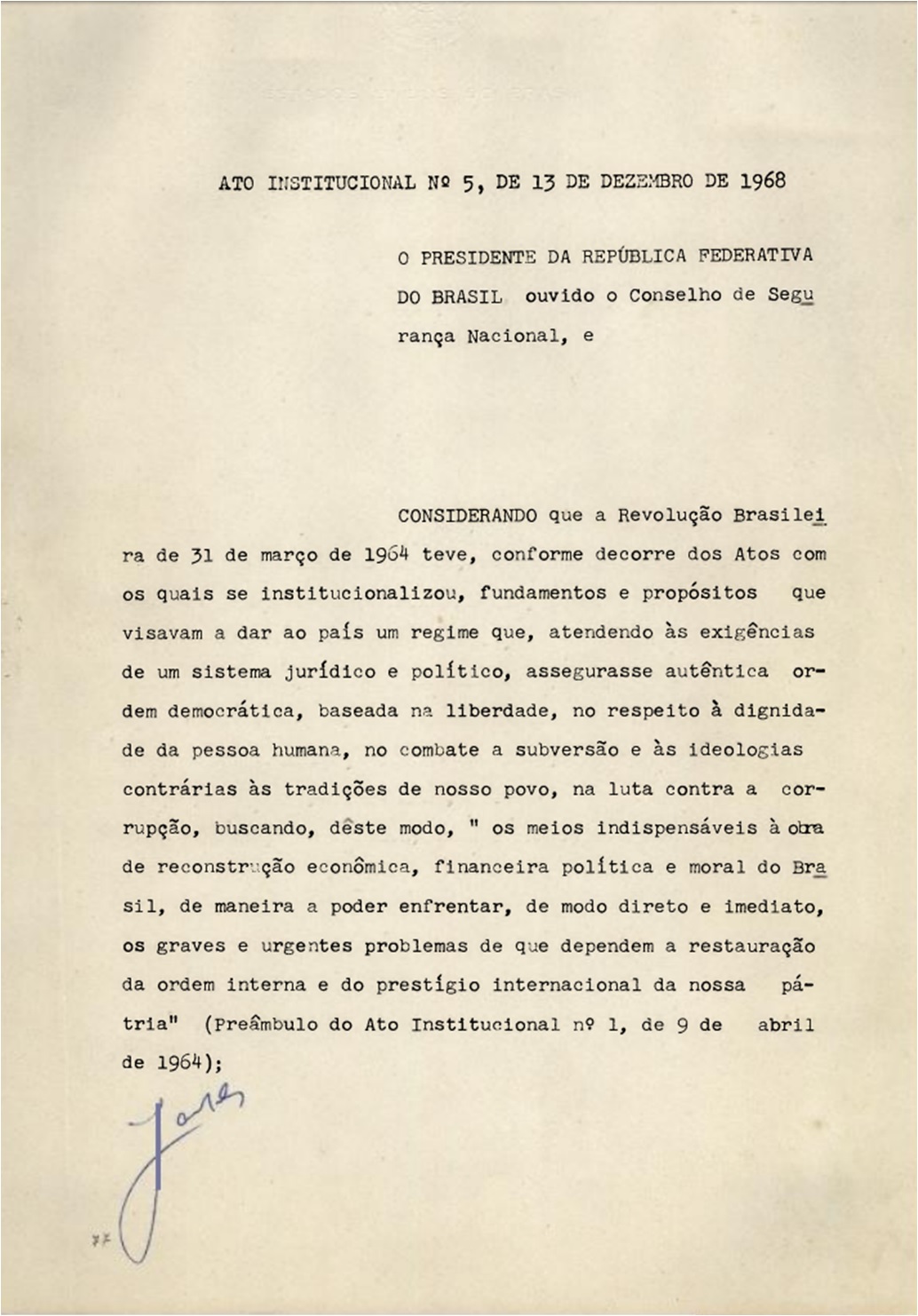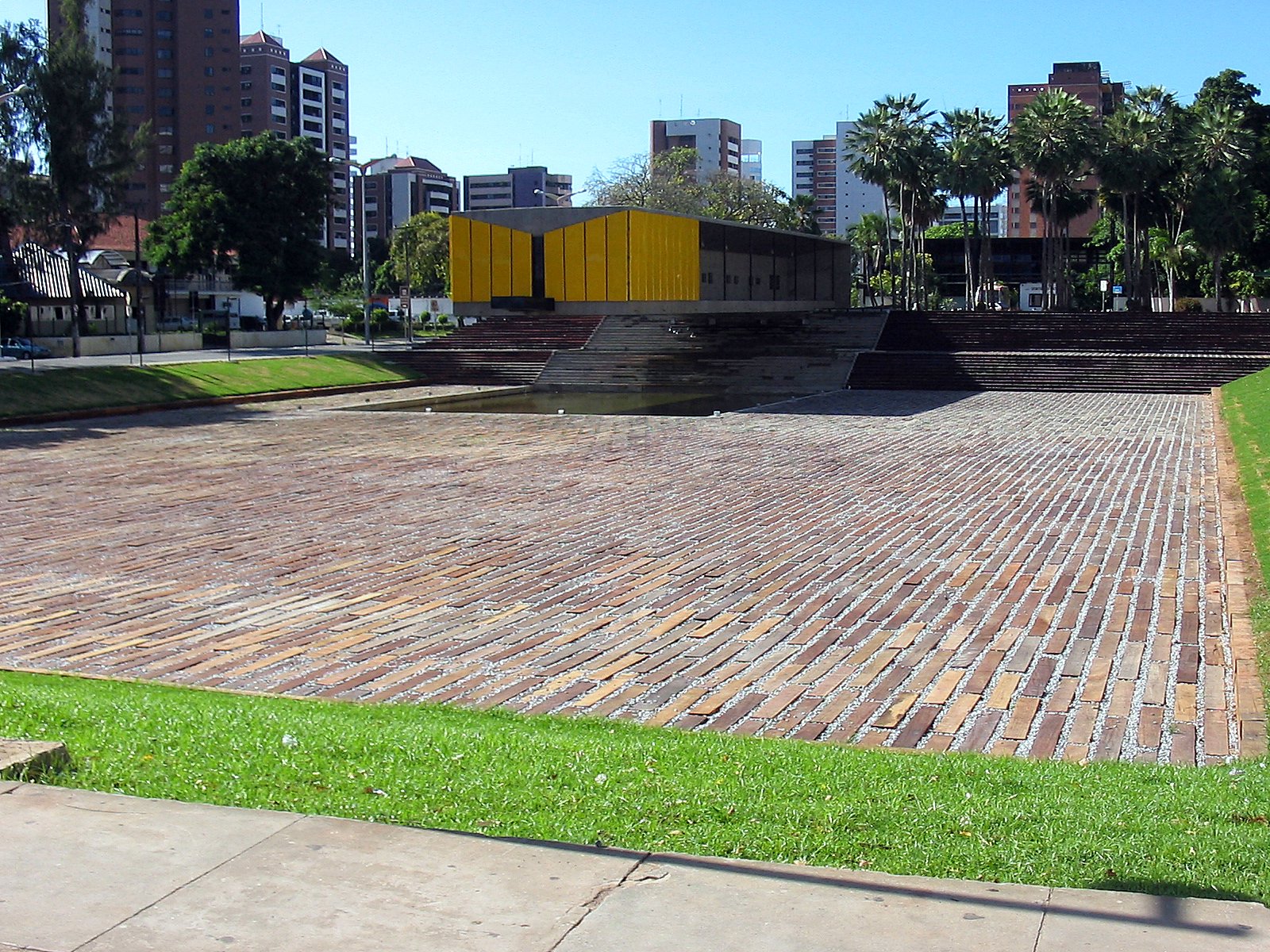|
Riocentro Attack
The Riocentro bombing ( pt, Atentado do Riocentro) was an attempted terrorist attack that took place on the evening of 30 April 1981, during a May Day celebration concert at the Riocentro convention center in Rio de Janeiro, Brazil. The bombing, carried out by officers of the Brazilian Army, was a false flag operation intended to frame left-wing guerrillas as violent and thereby halting the country's transition towards democracy. It ended up having the opposite effect, accelerating the end of Brazil's military regime, in power since 1964. One of the perpetrators of the attack died, while the other was injured, from an accidental detonation of one of the bombs. A criminal inquiry from the time was inconclusive. There have been renewed investigations since 1999, one of which, conducted by the National Truth Commission, concluded that military authorities were responsible for the planning and execution of the bombing. Background In April 1964 a coup d'état overthrew elected presi ... [...More Info...] [...Related Items...] OR: [Wikipedia] [Google] [Baidu] |
Military Dictatorship Of Brazil
The military dictatorship in Brazil ( pt, ditadura militar) was established on 1 April 1964, after a coup d'état by the Brazilian Armed Forces, with support from the United States government, against President João Goulart. The Brazilian dictatorship lasted for 21 years, until 15 March 1985. The military coup was fomented by José de Magalhães Pinto, Adhemar de Barros, and Carlos Lacerda (who had already participated in the conspiracy to depose Getúlio Vargas in 1945), then governors of the states of Minas Gerais, São Paulo, and Guanabara, respectively. The coup was planned and executed by the most forefront commanders of the Brazilian Army and received the support of almost all high-ranking members of the military, along with conservative elements in society, like the Catholic Church and anti-communist civil movements among the Brazilian middle and upper classes. Internationally, it was supported by the State Department of the United States through its embassy in Brasil ... [...More Info...] [...Related Items...] OR: [Wikipedia] [Google] [Baidu] |
National Truth Commission
In Brazil, the National Truth Commission ( pt, Comissão Nacional da Verdade) investigated human rights violations of the period of 1946–1988 - in particular by the authoritarian military dictatorship that ruled Brazil from April 1, 1964 to March 15, 1985. The commission lasted for two years and consisted of seven members. Members of the commission had access to all government files about the 1946–1988 period and could convene victims or people accused of violations for testimony; although it wasn't mandatory for them to attend. On 10 December 2014, the commission issued a report with its findings. The report identified the participation of 337 agents of Brazilian government involved in human rights violations, including arbitrary prisons, forced disappearings, torture and subsequent death of political opponents to the dictatorship. According to the report, 434 people were killed or disappeared by actions of the military regime, together with over 8,300 across the i ... [...More Info...] [...Related Items...] OR: [Wikipedia] [Google] [Baidu] |
Jimmy Carter
James Earl Carter Jr. (born October 1, 1924) is an American politician who served as the 39th president of the United States from 1977 to 1981. A member of the Democratic Party (United States), Democratic Party, he previously served as the 76th governor of Georgia from 1971 to 1975 and as a Georgia state senator from 1963 to 1967. Since leaving office, Carter has remained engaged in political and social projects, receiving the Nobel Peace Prize in 2002 for his humanitarian work. Born and raised in Plains, Georgia, Carter graduated from the United States Naval Academy in 1946 with a Bachelor of Science degree and joined the United States Navy, serving on numerous submarines. After the death of his father in 1953, he left his naval career and returned home to Plains, where he assumed control of his family's peanut-growing business. He inherited little, due to his father's forgiveness of debts and the division of the estate amongst himself and his siblings. Nevertheless, his ... [...More Info...] [...Related Items...] OR: [Wikipedia] [Google] [Baidu] |
Latin America
Latin America or * french: Amérique Latine, link=no * ht, Amerik Latin, link=no * pt, América Latina, link=no, name=a, sometimes referred to as LatAm is a large cultural region in the Americas where Romance languages — languages derived from Latin — are predominantly spoken. The term was coined in the nineteenth century, to refer to regions in the Americas that were ruled by the Spanish, Portuguese and French empires. The term does not have a precise definition, but it is "commonly used to describe South America, Central America, Mexico, and the islands of the Caribbean." In a narrow sense, it refers to Spanish America plus Brazil (Portuguese America). The term "Latin America" is broader than categories such as ''Hispanic America'', which specifically refers to Spanish-speaking countries; and ''Ibero-America'', which specifically refers to both Spanish and Portuguese-speaking countries while leaving French and British excolonies aside. The term ''Latin America'' was f ... [...More Info...] [...Related Items...] OR: [Wikipedia] [Google] [Baidu] |
DOI-CODI
The Departamento de Operações de Informações - Centro de Operações de Defesa Interna ( en, Department of Information Operations - Center for Internal Defense Operations) was the Brazilian intelligence and political repression agency during the military dictatorship (1964–1985). This period started on March 31, 1964, with the removal of the civilian government by military forces and ended in 1984. DOI-CODI was responsible for suppressing internal dissent against the regime. It acted as a political police, using torture and other counter-insurgency methods, with a focus on anti-communism. Several political activists, intellectuals, artists, college students and journalists were interrogated and at times tortured by the DOI-CODI throughout its existence. The first DOI unit started in São Paulo as a private organization called "OBAN - Bandeirante Operation" ( – OBAN). OBAN was an illegal organization created using members of the federal police, civil state police, military ... [...More Info...] [...Related Items...] OR: [Wikipedia] [Google] [Baidu] |
National Intelligence Service Of Brazil
The Serviço Nacional de Informações, or SNI (National Information Service) of Brazil was formed by the military dictatorship in Brazil under Castelo Branco in 1964. SNI was disbanded for a time and later resumed operations under the name Brazilian Intelligence Agency. History Originally, the SNI was a civilian agency under the retired General Golbery do Couto e Silva in 1964. It provided Castelo Branco with an alternative intelligence source and was initially trained by the PIDE of the Salazar regime. After the political dominance of Brazilian hard-liners in 1967, the SNI came under military control and began to be trained by the CIA. The agency was the backbone of the regime's anti-communist actions. Although there have been secret police in Brazil since at least the Vargas era, military involvement reached new heights with the creation of the SNI. It grew out of the Institute for Research and Social Studies (Instituto de Pesquisas e Estudos Sociais or IPES), which Couto ... [...More Info...] [...Related Items...] OR: [Wikipedia] [Google] [Baidu] |
National Security
National security, or national defence, is the security and defence of a sovereign state, including its citizens, economy, and institutions, which is regarded as a duty of government. Originally conceived as protection against military attack, national security is widely understood to include also non-military dimensions, including the security from terrorism, minimization of crime, economic security, energy security, environmental security, food security, and cyber-security. Similarly, national security risks include, in addition to the actions of other nation states, action by violent non-state actors, by narcotic cartels, and by multinational corporations, and also the effects of natural disasters. Governments rely on a range of measures, including political, economic, and military power, as well as diplomacy, to safeguard the security of a nation state. They may also act to build the conditions of security regionally and internationally by reducing transnational caus ... [...More Info...] [...Related Items...] OR: [Wikipedia] [Google] [Baidu] |
Habeas Corpus
''Habeas corpus'' (; from Medieval Latin, ) is a recourse in law through which a person can report an unlawful detention or imprisonment to a court and request that the court order the custodian of the person, usually a prison official, to bring the prisoner to court, to determine whether the detention is lawful. The writ of ''habeas corpus'' was described in the eighteenth century by William Blackstone as a "great and efficacious writ in all manner of illegal confinement". It is a summons with the force of a court order; it is addressed to the custodian (a prison official, for example) and demands that a prisoner be brought before the court, and that the custodian present proof of authority, allowing the court to determine whether the custodian has lawful authority to detain the prisoner. If the custodian is acting beyond their authority, then the prisoner must be released. Any prisoner, or another person acting on their behalf, may petition the court, or a judge, for a ... [...More Info...] [...Related Items...] OR: [Wikipedia] [Google] [Baidu] |
Institutional Act Number Five
The Ato Institucional Número Cinco – AI-5 ( en, Institutional Act Number Five) was the fifth of seventeen major decrees issued by the military dictatorship in the years following the 1964 coup d'état in Brazil. ''Institutional Acts'' were the highest form of legislation during the military regime, given that they overruled even the highly authoritarian Constitution, and were enforced without the possibility of judicial review. They were issued on behalf of the "Supreme Command of the Revolution" (the regime's leadership). AI-5, the most infamous of all Institutional Acts, was issued by dictator Artur da Costa e Silva, president at the time on December 13, 1968. It resulted in the forfeiture of mandates, interventions ordered by the President in municipalities and states and also in the suspension of any constitutional guarantees which eventually resulted in the institutionalization of the torture commonly used as a tool by the State. Written by then Minister of Justice, Lu ... [...More Info...] [...Related Items...] OR: [Wikipedia] [Google] [Baidu] |
Artur Da Costa E Silva
Artur da Costa e Silva (; 3 October 1899 – 17 December 1969) was a Brazilian Army Marshal and the second president of the Brazilian military government that came to power after the 1964 coup d'état. He reached the rank of Marshal of the Brazilian Army, and held the post of Minister of War in the military government of President Castelo Branco. During his term in office Institutional Act 5 was promulgated. This law gave the President powers to dismiss the National Congress, strip politicians of their offices of power, and institutionalize repressive methods of rule against left-wing parties and individuals. Costa e Silva's government started the most oppressive stage of the military regime against opposition, left-wing activists and suspected communists, which would be continued and expanded under his successor Emílio Garrastazu Médici. Early life Birth Costa e Silva was born in Taquari in Rio Grande do Sul state on 3 October 1899. While several sources erroneously ... [...More Info...] [...Related Items...] OR: [Wikipedia] [Google] [Baidu] |
Hardline
In politics, hardline (or hard-line) is an adjective describing a stance on an issue that is inflexible and not subject to compromise. A hardliner is a person holding such views. The stance is usually far from the centrist view. People, policies, and laws can be considered hardline. A hardliner may be either a reactionary or a revolutionary. Synonyms for hardliner include diehard, hawk, extremist, fanatic, or zealot. The term is almost always relative to the Overton window of a given time and place. Examples by country France The French government has taken a hardline stance against terrorism. France removed restrictions on raiding houses of suspected terrorists, although only five cases have been brought to court while over four thousand searches were conducted. Critics say the approach unfairly blames the Muslim community for radical extremists. Iran Ebrahim Raisi, a Shi'ite cleric and prominent politician, ran as a hardline challenger to President Rouhani in 2017 and wa ... [...More Info...] [...Related Items...] OR: [Wikipedia] [Google] [Baidu] |
Humberto Castelo Branco
Marshal Humberto de Alencar Castelo Branco () (September 20, 1897 – July 18, 1967) was a Brazilian military leader and politician. He served as the first president of the Brazilian military dictatorship after the 1964 military coup d'etat. Castelo Branco was killed in an aircraft collision in July 1967, soon after the end of his presidency. Family background Castelo Branco was born in a wealthy Northeastern Brazilian family having roots in Coura (Paredes de Coura), Portugal. His father, Cândido Borges Castelo Branco, was a general. His mother, Antonieta Alencar Castelo Branco, came from a family of intellectuals (which included the writer José de Alencar). He was married to Argentina Vianna, and had two children, Nieta and Paulo. Military career Castelo Branco joined the Brazilian Army at Rio Pardo Military School in Rio Grande do Sul. In 1918, he joined the Military School of Realengo in Rio de Janeiro, as an Infantry cadet, and was declared second lieutenant in 19 ... [...More Info...] [...Related Items...] OR: [Wikipedia] [Google] [Baidu] |








